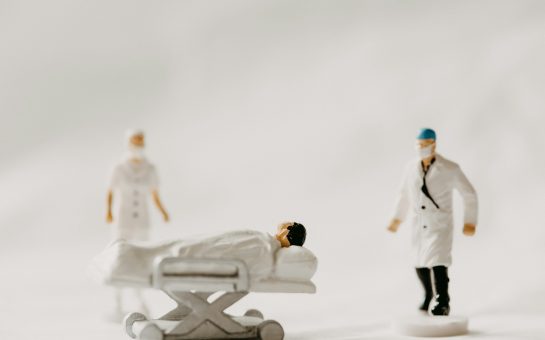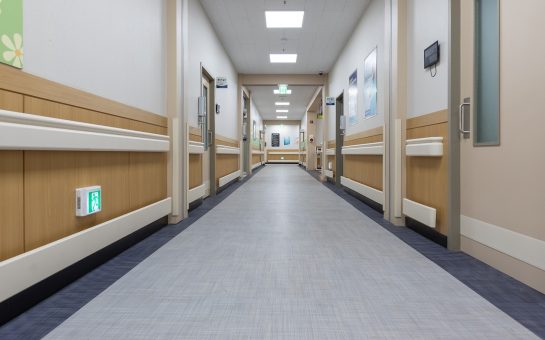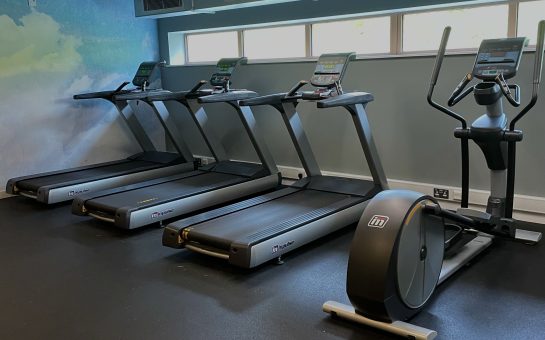There are few things in life that can be considered as important as saving the lives of others but for those in the medical profession it’s just another part of a very hectic schedule.
And Dr Julian Barker, a cardiothoracic (heart and lungs) anesthetist and intensive care consultant at the University Hospital of South Manchester is no different.
The 43-year-old from Heaton Moor has also been the director of the Extra Corporeal Membrane Oxygenation (ECMO) program at the Wythenshawe hospital since its inception in December 2011.
Dr Barker insisted he felt very privileged to have played such an integral role in developing the ECMO service at the hospital and the life-saving care that it can give.
“I’m convinced that ECMO is the future of intensive care,” he said.
“It is capable of salvaging patients in a way that I never thought was possible from what I’ve seen in my medical career to date.
“I’ve now born witness to numerous patients surviving from situations where I’ve no doubt at all that they would have died without ECMO.
“The reward on a personal level when these patients come back to our Intensive Care Unit some months later and say ‘thanks’ – it moves me to tears.
“What better job satisfaction can you get?”
The ECMO system can provide support for the lungs, or the heart and lungs, depending on what parts of the body it is connected to.
It uses cardiopulmonary bypass technology to oxygenate blood outside the body, effectively running as an extra organ, enabling the lungs to rest.
This eases the workload of the organs and Dr Barker likened the effects of the machine to the recovery process associated with a broken leg.
“You don’t heal a broken leg by running on it,” he said.
“Similarly, the lungs don’t recover well by being made to work harder by being exposed to high pressures and high oxygen tensions by mechanical ventilation.”
In the last decade, ECMO had increasingly provided a way of treating Adult Respiratory Distress Syndrome (ARDS), a condition characterised by heart and lung failure.
The hospital is one of five across the county to house the ECMO kit, and Dr Barker is part of a seven-person strong team of consultants who provide the service.
Behind them is an even larger team of support staff who make all of the work possible.
Collating all of the resources has enabled Dr Barker to provide a team capable of mobile care, an achievement he is very proud of.
“It has been a huge challenge and very rewarding,” he said.
“The things that can be achieved with the technology that we now have are truly amazing.
“I’m sure that all of the previously young, fit and healthy patients that have needed ECMO and then have recovered to go back to their kids and their jobs are absolutely worth it.”
During the Swine Flu outbreak in winter 2010, ECMO kit received widespread media coverage following its use both in Britain and Australia in treating the virus.
Dr Barker played a key role in organising the response and highlighted the importance of ECMO technology in saving lives.
“The results on both sides of the world were impressive in that many patients made good recoveries despite being critically ill with lung failure,” he said.
“There were several young patients throughout the country who became extremely ill and needed ECMO support to salvage them.”
His working week consists of anaesthetising patients for heart and lung surgery, including for transplantation, and mobile ECMO treatments.
In addition to this he spends time as the consultant in charge of the cardiothoracic intensive care, checking on patients and making vital decisions regarding their health and wellbeing.
Dr Barker studied Medicine at Victoria University of Manchester and graduated in 1993, and has held a lead clinician role for the last five years.
On top of his current hospital duties Dr Barker also runs a course at Salford University in critical care and lectures to a wide range of trainees, nurses and other medical staff in the region.
He said there is a lot of interest in the ECMO program from junior doctors and that he is always happy to talk about it when questioned.
Looking to the future he doesn’t see his role changing very much and is very focused on the gradual growth of the ECMO facilities at UHSM.
“I’m keen to see the expansion of Wythenshawe and I hope to be part of the team that sees it expand and the services then prove successful,” he explained.
“I feel very privileged because not everybody in their career gets the chance to be involved in something new and exciting.
“I have no doubt that ECMO is the single most amazing intensive care treatment that I have seen.”
For the foreseeable future then, the health and prospects of patients at UHSM appear to be in very safe hands.
For more on this story and many others, follow Mancunian Matters on Twitter and Facebook.
Picture courtesy of the ECMO team at UHSM, with thanks



